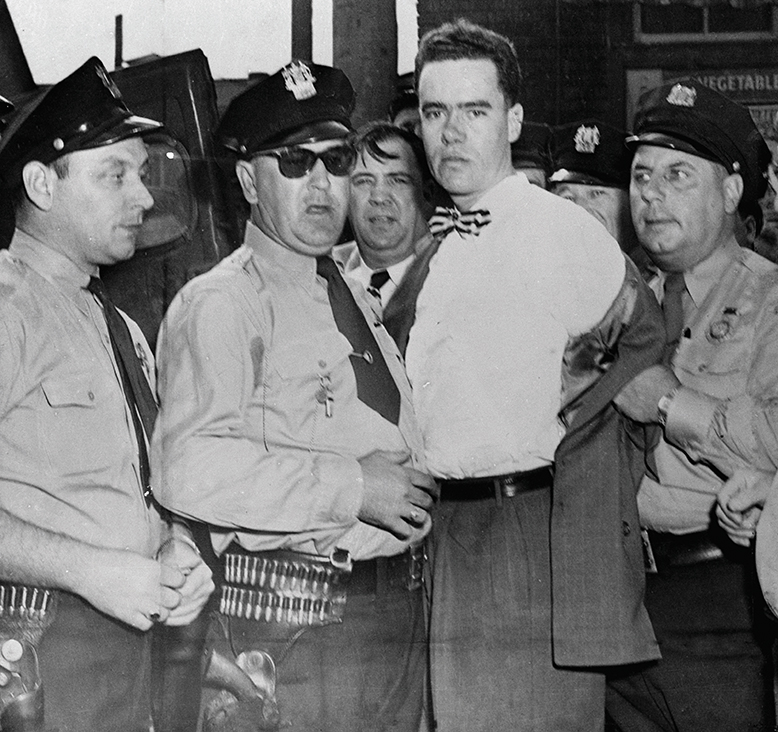
Law-enforcement agents in Camden arrest unemployed World War II veteran Howard Unruh following his September 6, 1949, shooting spree that left 13 dead. Bettmann/Getty Images
The Second World War had ended several years earlier, and life had gotten back to normal in Camden. Businesses were thriving; residents of varied backgrounds seemed to be getting along.
Except in the mind of Howard Unruh, an unemployed 28-year-old who always seemed to have a beef with someone. He had come home from the war with a boxful of medals, but after failing to hold a job, ended up living with his mother on River Road in the city’s Cramer Hill section.
On September 6, 1949, seemingly out of the blue, Unruh, a decorated marksman, walked up and down River Road shooting his Luger—a souvenir of the war—killing 13 people. Some victims he targeted; others he shot at random. Eventually, he went back to his mother’s apartment, where police tear-gassed and arrested him. Thus ended America’s first modern mass murder.
Unruh shot a pharmacist with whom he had argued, but also killed the man’s wife and mother. He killed a barber he had issues with, but also a 6-year-old boy on a carousel horse getting his back-to-school haircut. The tailor Unruh was targeting wasn’t at his shop, so Unruh murdered his young wife. He killed two people sitting in a car stopped at a street corner. He shot through a window and killed a 2-year-old boy.
RELATED—Camden Revisited: A New Approach to Policing
Unruh’s killing spree took 20 minutes before police could react. Trapped in his apartment, the killer took a phone call from a local journalist, who had looked up Unruh’s address and number in a phonebook. Unruh told the journalist he was “too busy” to explain why he was killing people.
One month after Unruh’s arrest, a judge declared him mentally unfit for trial and ordered him held at Trenton Psychiatric Hospital. By mid-October, the order was made permanent, and for the next 60 years, until his death in 2009, Unruh stayed in the Trenton hospital. Over the years, his pleas to go to a less stringent setting were always denied.
It would be 17 years before another murder spree—perpetrated by Charles Whitman at the University of Texas—drew such attention. The River Road section, though, was never the same, with the specter of what became known as Unruh’s walk of death always looming in the shadows.
In a final irony, the granddaughter of one of Unruh’s intended victims—the pharmacist’s son—survived the February 2018 mass shooting in Parkland, Florida. Both were saved by hiding in a closet.
